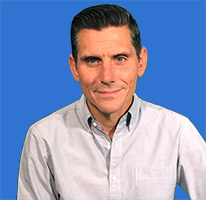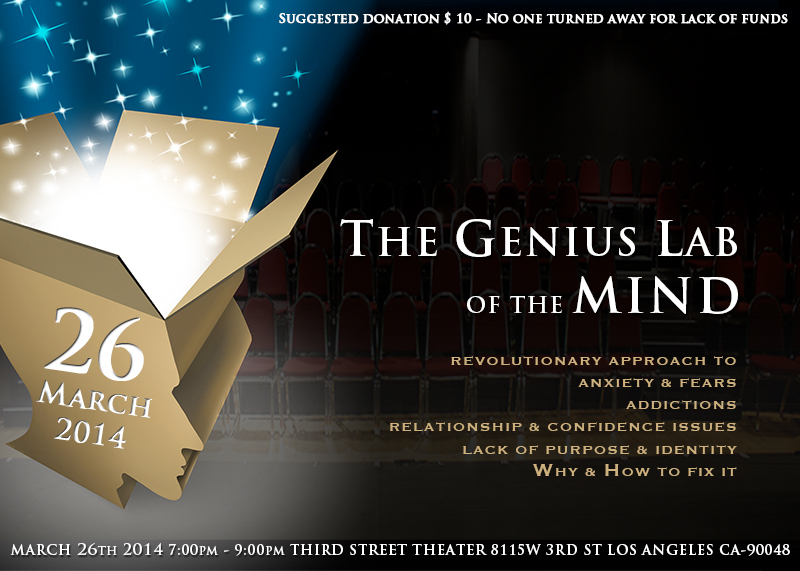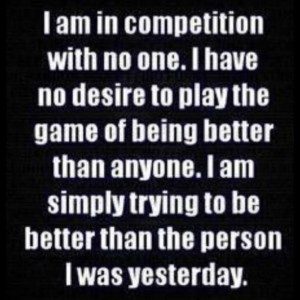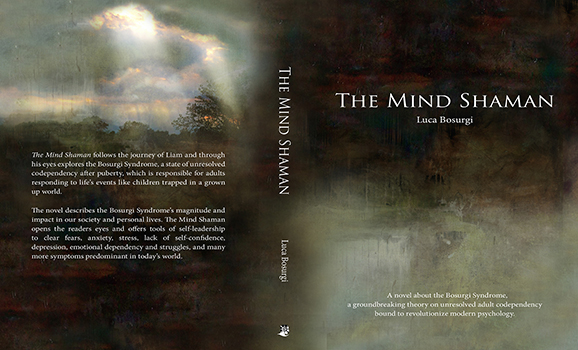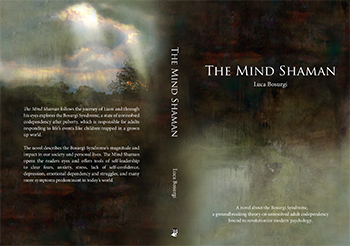From the book the Mind Shaman –
Billy is a very smart gay guy and also very funny . His life story was tough, sad, and very complex, but he kept it light, making constant jokes about his fears as well as the mediocrity and ignorance of his family. He was born in Santa Fe, New Mexico. His father was a training officer for the National Guard, a military-trained bulldozer: big man with huge fists, no feelings or emotions, harsh with his family in the same manner as he was with his cadets. His voice was so sharp and loud that Billy was still getting the creeps today just thinking about it. His mother is a full Native American from the Navajo tribe and was very submissive and kind, ready to do all that was in her power to please the husband.
Billy was the third of three boys. His brothers were the spitting image of their dad, playing with guns and fighting all day long. He was like his mom. He liked art, sewing, and painting. His mom was a great artist, and he learned the magic of colors and forms from her. But they had to do it in secret because his father would not consider the option that one of his kids might not enlist in an armed service. For him, art was for women; guns were for men. When Dad was home, Billy was constantly terrorized, hiding and walking on eggshells to not get him angry. All three kids had to endure physical punishment for every tiny mistake they did, which meant holding a standing position for hours, running around the house many, many times with no access to water, or fasting for an entire day, and so on; and this started from when they were still toddlers. The two older brothers got stronger and angrier. Billy, instead, got weaker and more sick, fainting all the time, horribly slim because he couldn’t hold food in his stomach. The constant pain in his gut provoked by his relentless fears brought him to the emergency room several times. The army doctors always thought that it was a bug in his stomach, and they sent him home with some useless pills.
He really tried to be like his dad, but it was not his nature. He just wanted to have a quiet life painting and sewing. But that was not allowed; he was a man! His illness and his passion for art provoked endless bullying and mocking from his brothers as well as constant very hurtful remarks from his Dad. He didn’t mind to be called “girl” or “daughter” by his father, but he suffered thinking that he let his dad down. He loved and admired his dad, and he would have cut off his arm to be loved back, but his father was too stuck in his soldier’s mind to understand the “different” beauty and powers of his youngest son. So he gave up on him and ignored him from the age of five. The pressure was gone, but the rejection that came with it was so devastating for the little Billy that his health got worse. His mother worried for his life and sent him to her parents in a tribal village a couple of hours south. There, Billy started a new life, and for the first time, he felt accepted and loved. His health improved dramatically, his stomach stop hurting, and he made friends, kids just like his loving nature, playing and doing art stuff. He started school in the local Navajo school. He was shy but very sharp, and the teachers liked him, but in some ways, he felt different from all the other boys. He felt much more in tune with the girls of his class, although somehow attracted to some of the older boys.
Around eight, he started experimenting with a couple of older boys, enjoying giving them pleasure. It was natural to him but also very confusing, and he couldn’t talk to anyone about it. His grandparents were old and still attached to the Navajo tradition that teaches to respect everyone without discrimination but to not discuss sex. They were good people, and they loved him dearly, but they weren’t equipped to give him much leadership or direction. He couldn’t talk with his parents either; his father would have killed him, and his mother was too scared and probably too depressed to deal with something like this. So Billy kept his painful secret to himself, feeling terribly guilty, as well as like an outsider with his peers. He returned to being sick, re-experiencing his old digestive problems and the constant pain in his guts. He felt that this was God’s punishment for his attraction to men, and he stopped seeing the kids that wanted sexual favors from him. Of course, he felt more isolated than ever, and only the passion for painting, sewing, and creating forms and shapes kept him going.
Around ten years old, the entire village was aware of Billy’s sexual nature. It was obvious by the way he talked and moved, and as much as everybody liked him for his kindness and skills in the different arts, every day he felt more excluded and despised for being gay. His breakthrough in accepting his sexuality came with a medicine man, a two-spirited person, a nadleeh. This was a famous healer that moved to the village the same month that Billy finished middle school. He was a Navajo, gifted with special powers and highly trained in his medicine, but also a guy that knew too well the struggle of being gay in his tribal traditions. He became his mentor and made him accept himself as a human being and his sexuality and healed his physical and mental struggles. This guy was the first real guidance in Billy’s life, and his presence and leadership had such an impact that Billy grew physically and mentally, becoming a man capable of taking care of himself.
When Billy graduated from high school, his mentor, attracted by Billy’s intelligence and skills, offered to train him in his medicine to become a healer. He loved the man, but he wanted out from the tribe and the judgment. He also wanted to develop his artistic skills and make some money with it. Billy jumped on a bus and travelled over twelve hundred miles to San Francisco. He was still very shy and fairly anxious, but the excitement of being free to be himself with others like him made him overcome all his fears. The first evening in town, he met Dino, the love of his life, a much older man, experienced, powerful, rich, and the owner of a fashion design company. His dream came true. One day in Frisco, he found all that he had desired: a leader, a father, a luxurious life incredibly different from his past, a man to love, and a job as fashion designer. This lasted just over three years. On his twenty-first birthday, Dino decided that he wanted a younger boyfriend and dumped Billy. In twenty-four hours, Billy found himself heartbroken, homeless, and jobless. It was totally unexpected. He thought that Dino was sharing the same love that he felt for him and their union was for life. He didn’t think about saving money or preparing a “Plan B”.
Fortunately, he immediately got back working, as he was already a great and established designer. Fashion designers fought to hire him. But that was the only aspect of his life that kept going in a straight line. Emotionally and physically, he was a mess. He felt totally lost and terribly sad. His digestive system started freaking out again, and he started losing weight and feeling sick all the time. For two years, he changed many partners trying to get back what he had lost with Dino, but each time was a further confirmation of his unlovability as well as his inability to be happy. Around twenty-four, sick and tired from rejection and physical and emotional pain, Billy went back to his tribe and his mentor in order to find himself again and get some rest from the constant misery experienced in his life. In the meantime, he made a decent amount of money, so he arrived with beautiful gifts, and the village welcomed him like a hero. But after a few weeks, he ended up hanging out with only his mentor and a couple of local gay guys, which in some ways was expected, and he was fine with it. He wasn’t there to build a new life.
Bored but restored, after a few months, he again left his mentor, the old grandparents, and his Navajo refuge. Determined to create a life for himself that no one will be able to mess up, Billy decided to find a business partner and create his own label. He already knew many people in the industry, but he couldn’t trust any one of them, so he sought an investor. Unfortunately, instead of looking for a pure financial investor that would finance his business, he searched for a father that would lead him as well as finance his venture. He did this in the gay world, but this time in Los Angeles, and he fell in the same trap of several years before. The new guy, much richer than Dino and totally in love with Billy, gave him a label, invested a ton of money, and enabled him do what he desired the most—creating collections.
Billy was a genius as a designer but totally inexperienced in the business of making money with fashion. He designed beautiful collections, but they were unsuitable for creating any cash flow, and he failed season after season until he gave up. His boyfriend was rich enough and still terribly in love with Billy, so he didn’t care about losing money with the toy that he created for his lover. But Billy couldn’t bare the shame of his fiasco and left the business and the guy. He wasn’t really in love with him anyway; he just enjoyed his paternal protection. Back to square one and too ashamed to retreat to New Mexico, Billy entered in to the worst period of his life. He worked as a freelance, making the minimum required for survival, and started drinking, smoking, taking a lot of drugs, and sleeping around with as many guys as he could. He was in West Hollywood every night, partying and burning his talent as well as his brain cells. He was twenty-eight when he fell on the floor of a bar one night, totally drunk, releasing blood from every cavity of his body. In the ER, they found his gut perforated as well as his blood infected with HIV.
At first, he decided to die and then to live. The deadly virus was probably just what he needed to appreciate life. He cleaned himself from drugs and casual sex, and he got back to designing in a stable job, managing a totally new type of life. This was last year, and he’s kept clean, sober, and single, too worried to infect someone and too ashamed to fall in love. He also kept his job despite his constant anxiety and fears. It doesn’t pay much, but he can’t get much more in his state of constant mood swings and recurring depression. One of his best friends, a well-known publicist, told him about Luca a couple of months ago, and here he is, and . . . he jokes about all this. Respect the man! I would not be capable of joking for sure.
And . . . here we have another victim of the Bosurgi Syndrome. This guy with a different dad and a different mom would very likely be Valentino number two. Instead, he is here joking about his life’s fiasco. Maybe he is still in time to do something great. I’m sure Carla will do the magic! I wonder if I will be able to follow the impact of this work on our clients in the next part of their lives. It would be very rewarding as well as a great matter for a book or a show. We should probably consider this as one of the Bosurgi Syndrome Institute spin-off projects. I should talk to Luca about it.
Carla ended the first part of their work, telling Billy about their targets: “Our goal is to provide you the tools you need to become self-sufficient. We need to clear your codependency, and consequently your fears, anxiety, and need for external leadership, in order to enable you to create a successful fashion label with someone that knows how to run that business. This will allow you to capitalize on all your past experiences and mistakes, providing you with what you desire the most, the ability to create, to succeed, and to reach a powerful state of unconditional happiness. Correct?” Over these words, Billy changed expression stopping his jokes, looked Carla with the expression of a kid, betrayed already too many times, and asked with a little voice, “I wish! Do you really believe that could be possible? I’m rotten inside now. Isn’t too late?”
Carla took his hands smiling and promised that she will get him there in just a few weeks. Billy started crying quietly, almost ashamed to be emotional. He used his jokes to keep some power, but now he felt good to let go, surrendering all his power to Carla.
From the book the Mind Shaman
